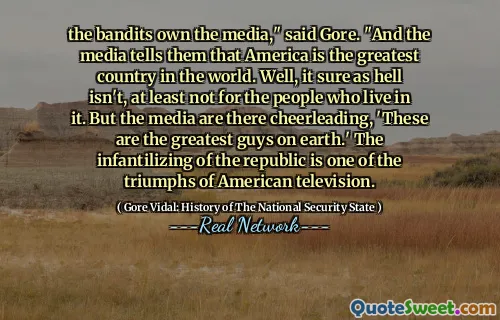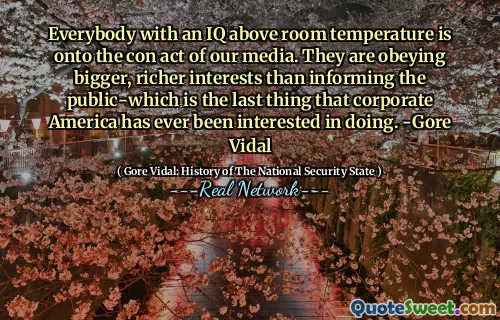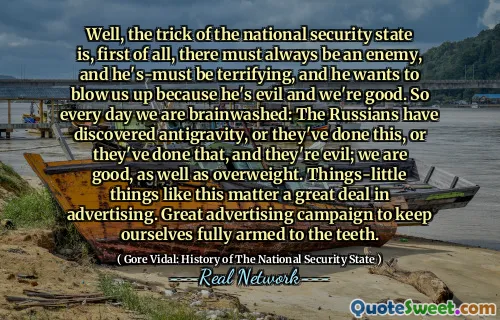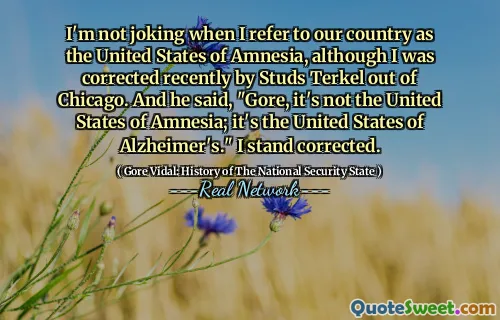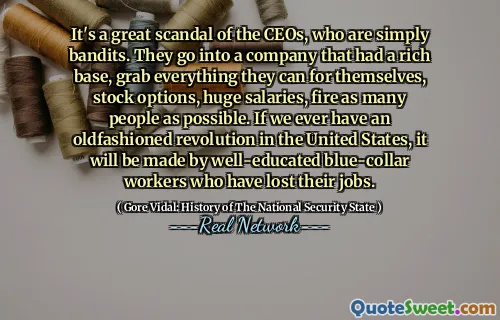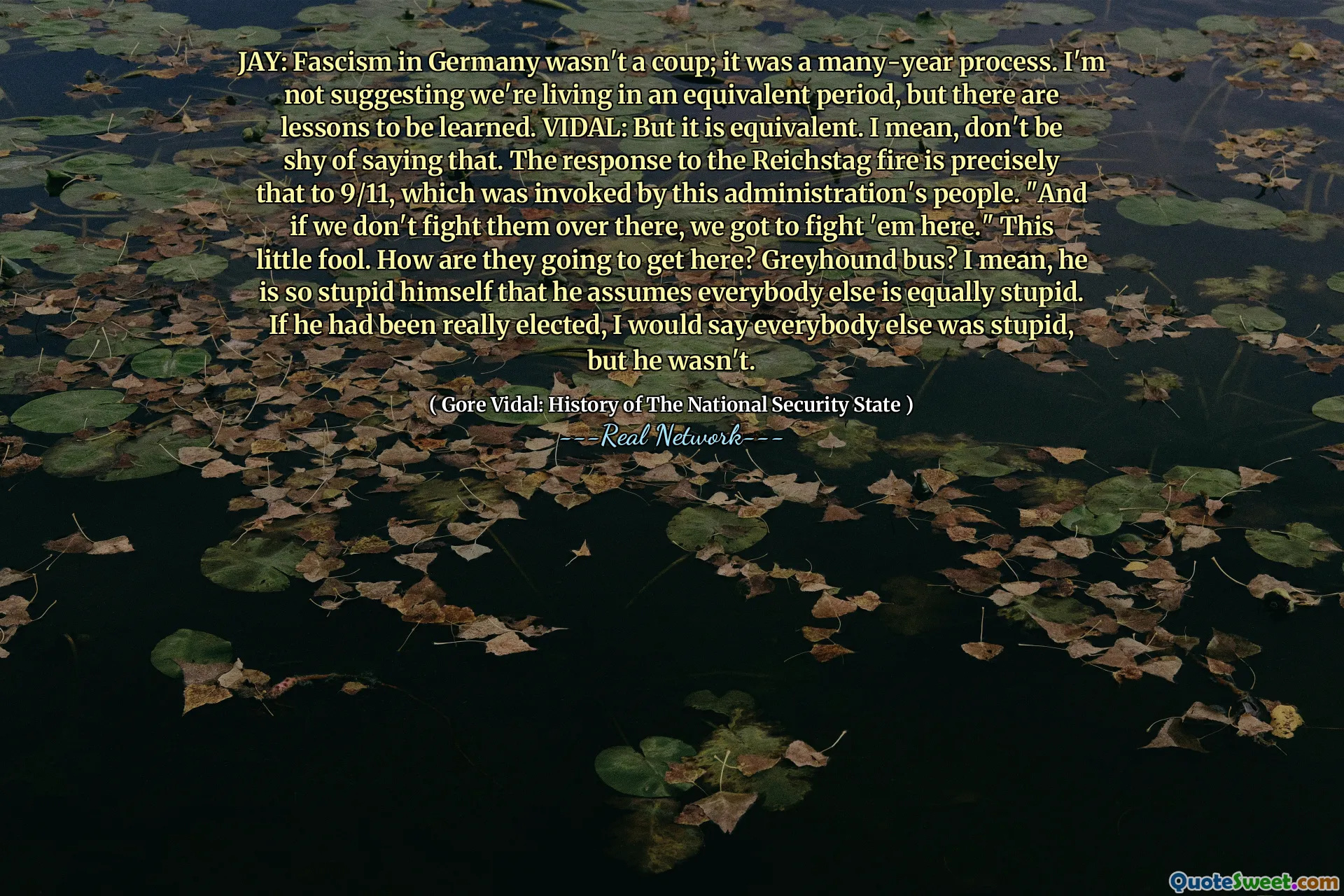
JAY: Fascism in Germany wasn't a coup; it was a many-year process. I'm not suggesting we're living in an equivalent period, but there are lessons to be learned. VIDAL: But it is equivalent. I mean, don't be shy of saying that. The response to the Reichstag fire is precisely that to 9/11, which was invoked by this administration's people. "And if we don't fight them over there, we got to fight 'em here." This little fool. How are they going to get here? Greyhound bus? I mean, he is so stupid himself that he assumes everybody else is equally stupid. If he had been really elected, I would say everybody else was stupid, but he wasn't.
In a discussion between Jay and Vidal, they reflect on the historical process that led to fascism in Germany, emphasizing that it wasn't an overnight event but a gradual evolution. Jay urges caution, suggesting that while today's circumstances are not identical, we can learn from past mistakes. Vidal, however, sees a parallel between the rise of fascism and the current political climate, highlighting the similarities in government responses to crises like the Reichstag fire and 9/11, positing that both serve to justify military action and control.
Vidal criticizes the government's narrative that justifies preemptive strikes and defensive actions based on unfounded fears, mocking the idea that enemies could easily invade. He argues that such simplistic logic underestimates public intelligence and insists on the need to challenge these narratives, suggesting that the political environment is reactive and filled with irrational fears. This dialogue underscores the importance of examining history to understand contemporary political dynamics.
